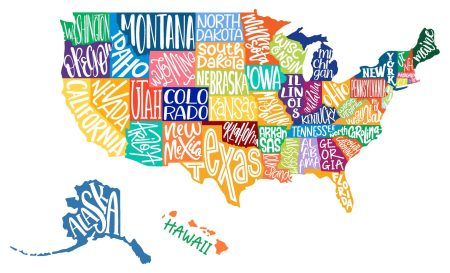This is a published version of our weekly Forbes Tax Breaks newsletter. You can sign-up to get Tax Breaks in your inbox here.
Despite the fact that the thermometer still reads summer, fall is creeping closer. According to the National Retail Federation, one in five (22%) back-to-school shoppers have already started gearing up for the 2024-25 school year (you can count me as one of them).
However, with above-average prices in stores and online, those shoppers are looking for a bargain. A sales tax holiday is a period of time—often falling over a weekend—when a state will waive or reduce their sales tax payable on certain items. Many states focus their annual sales tax holiday on back-to-school supplies, though some—like Florida—offer sales tax holidays on more goods and services. Some of those sales tax holidays start this weekend (☆).
Also on the rise? California business taxes. The state recently passed legislation that suspends the net operating loss deduction for tax years beginning on or after January 1, 2024, and before January 1, 2027. The suspension applies to taxpayers with more than $1 million in net income for the tax year. Modified adjusted gross income excludes deductions from NOLs. Combined with the NOL suspension during 2020 to 2021, with the current pause on NOL deductions, only the taxable years 2022 to 2023 are eligible for the California NOL deduction.
Corporations are still grappling with a 2021 law, the Corporate Transparency Act—or CTA—which took effect this year. The law requires reporting companies to file reports with FinCEN, the Financial Crimes Enforcement Network. FinCEN has been rolling out guidance—including new FAQ information posted as of July 8, 2024. And, the CTA has been challenged in court. If you’re looking for an update on where things stand, you can find it here (☆).
You couldn’t go far this summer without hearing about Project 2025, a blueprint for the United States federal government and to consolidate executive power should the Republican nominee, presumably Donald Trump, win the 2024 presidential election. Tax reform is included in the proposal, found mostly in Chapter 22, Department of Treasury. Stage 1 “intermediate” reform would retain the basic structure of the Tax Cuts and Jobs Act (TCJA) but dramatically adjust its moving parts, while stage 2 “fundamental reform” would abolish individual and corporate income taxes and replace them with a consumption tax.
Project 2025 also calls for the IRS budget to be cut. That may appeal to those facing increased audit prospects—including those with high incomes. A Treasury Inspector General for Tax Administration (TIGTA) report found that to meet an audit quota set in 2020, the IRS started examining tax returns that fit a designated profile of “high income” taxpayers, even if these returns did not show typical signs of irregularities (high-income taxpayers were defined as those with a total positive income of $10 million or more). As a result of trying to reach the quota directive, TIGTA reports that the drop in efficiency at the IRS was so steep that the agency has ceased compliance with this directive and changed its course.
That doesn’t mean that the IRS isn’t focused on enforcement efforts. The IRS recently announced the collection of $1 billion in past-due taxes from millionaires since 2023. The average tax levy on those individuals was $625,000.
The news isn’t all bad for high-income households—those making about $450,000 or more would receive more than 45% of the benefits of extending key provisions of the TCJA according to a new analysis by the Urban-Brookings Tax Policy Center. Making those provisions permanent would, the report found, cut taxes for households in the top 1% of income (those making $1 million or more) by 3.2%, while the top 0.1%, who will make $5 million or more, would receive an average tax cut of nearly $280,000, or 3% of their after-tax income.
That’s a look at our top tax news this week (don’t worry, there’s more good stuff below).
Enjoy your weekend!
Kelly Phillips Erb (Senior Writer, Tax)
Articles marked with (☆) are premium content and require you to log-in with your Forbes membership credentials. Not a subscriber yet? Click here to sign up.
Taxes From A To Z: G Is For Garnishment
One of the ways that the IRS works to make sure they get paid is the use of a levy. A levy is a legal seizure of your property.
Wages can be levied—that’s typically referred to as a wage garnishment—but there are limits. By statute, the amount that’s exempt from levy is determined by a formula. That amount is equal to the standard deduction plus an amount determined under section 6334(d)(4)(B)—for 2024, that number is $5,000 (that amount is multiplied by the number of the taxpayer’s dependents for the taxable year in which the levy occurs)—divided by 52. The result is your weekly exempt amount.
If the IRS garnishes your wages, that will continue each pay period until you make other arrangements to pay your overdue taxes, the amount of overdue taxes you owe is paid, or the levy/garnish is released.
Statistics
The latest annual report to Congress issued by the IRS Whistleblower Office suggests more taxpayers than ever are blowing the whistle on bad tax behavior. The IRS paid whistleblowers 121 awards totaling $88.8 million in 2023—those amounts correspond to information that resulted in tax collections of $338 million. That’s a significant increase from the total whistleblower awards paid in 2022, when just $37.8 million were distributed.
(Spoiler alert: Not all “whistleblowing” is created equal. The IRS isn’t looking to reward folks to report instances of minimal or incidental fraud. They’re looking for high-dollar fraud—despite what you might see on TikTok. (☆))
While these numbers may sound impressive, coming forward can be challenging. (☆) Whistleblower protections are relatively new, explains Sherron Watkins. Watkins would know. She made news in the early 2000s when she alerted Kenneth Lay, Enron’s then-CEO, about accounting irregularities in financial reports.
Questions
This week, a reader asks:
I inherited an IRA, and I know I am required to take minimum distribution each year from it. However, I have a student loan that is deferred based on my income. The same issue is for my health insurance via the marketplace, it’s income dependent. Do these inherited IRAs impact those things?
Healthcare premiums from the marketplace and many student loan repayment plans rely on your modified adjusted gross income (MAGI)—that number is very close to your adjusted gross income (AGI) that you’ll find on line 11 of your Form 1040. Unfortunately for you, MAGI typically includes distributions from retirement plans, including most IRA and 401k withdrawals.
—
Do you have a tax question or matter that you think we should cover in the next newsletter? We’d love to help if we can. Check out our guidelines and submit a question here.
A Deeper Dive
Still reeling from the Supreme Court’s ruling in Moore v. United States? As many people expected, the outcome is considered a victory for the federal government. Tax Notes contributing editor Robert Goulder breaks down the ruling and what it means for the tax world.
As a recap, the Supreme Court ruled that the mandatory repatriation tax (MRT)—which attributes the income of an American-controlled foreign corporation to the entity’s American shareholders and then taxes the American shareholders on their portions of that income—does not exceed Congress’s constitutional authority. (☆) The case, Moore v. U.S., raised questions that could have shaken up the tax world—you can read some of the reactions here. (☆)
Tax Filings And Deadlines
📅 July 15, 2024. Due date for individuals and businesses in parts of Rhode Island, including Kent, Providence and Washington counties, affected by severe storms and flooding that began on December 17, 2023. More info here.
📅 July 31, 2024. Due date for individuals and businesses in parts of Massachusetts affected by severe storms and flooding that began on September 11, 2023. More info here.
Tax Conferences And Events
📅 July 15, 2024. Learn about Moore v. United States—called “the most important tax case of the century”—from the attorneys who argued the case. American Bar Association Virtual CLE, 1 p.m. EDT, registration required.
📅 July-September, 2024. IRS has announced the continuing education (CE) agenda for the 2024 Nationwide Tax Forum. Attendees can earn up to 19 CE credits over three days by attending one of the five forums in Chicago (July 9-11), Orlando (July 30-August 1), Baltimore (August 13-15), Dallas (August 20-22), or San Diego (September 10-12). Registration required.
Positions and Guidance
In a letter to the U.S. Securities and Exchange Commission (SEC) last week, the American Institute of CPAs (AICPA) commented on RIN 1506-ab66, Customer Identification Programs for Registered Investment Advisers and Exempt Reporting Advisers as proposed by the Financial Crimes Network (FinCEN). The AICPA is asking the SEC to address concerns of redundant duties when a Registered Investment Adviser (RIA) holds all their investments with a custodian and the significant administrative burden on small CPA firms that are also small RIAs.
Noteworthy
DLA Piper announced that Derek Kurrant has joined the firm’s Calgary office as counsel in the tax group. Derek has over 25 years of experience in tax law that affect public companies and private enterprises.
Baker McKenzie has announced that Laura Nguyên-Lapierre has been promoted to senior counsel in the tax team; Nguyên-Lapierre specializes in transfer pricing and international taxation. The firm also announced that Robin Gaulier and Romain Marroux have been promoted to counsel in the tax team; Gaulier specializes in the tax aspects of M&A and private equity transactions while Marroux specializes in corporate and international taxation.
Intuit, the parent company of TurboTax and Credit Karma, announced plans to lay off 1,800 employees, 10% of the company’s workforce. According to the company, the job shedding is due to its recent investment into AI.
—
If you have career or industry news, submit it for consideration here.
Trivia
When Enron declared bankruptcy in 2001, it was the largest corporate bankruptcy at the time. What corporate bankruptcy that followed in 2002 was bigger?
A. Lehman Brothers
B. Washington Mutual
C. WorldCom
D. General Motors
Find the answer at the bottom of this newsletter.
In Case You Missed It
Here’s what readers clicked through most often last week:
You can find the entire newsletter here.
Trivia Answer
The answer is (C) WorldCom.
Each of the four companies claimed bankruptcy, and the filings were all larger than Enron’s. However, only WorldCom filed for bankruptcy in 2002. Lehman Brothers and Washington Mutual filed in 2008, and General Motors filed in 2009.
Feedback
How did we do? We’d love your feedback. If you have a suggestion for making the newsletter better, let us know.
Read the full article here












